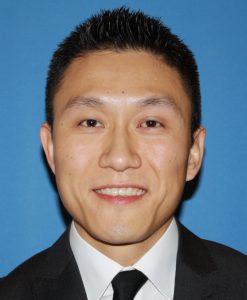integrative medicine
Our Mission
To guide curious individuals with medical knowledge to reduce unnecessary contacts with healthcare professionals, focusing on functional medicine to optimize health.
our philosophy
The word “doctor” originates from Latin; its meaning is “to teach” (Wikipedia). Medical care should be more efficient, and that starts with you. As an advocate for your health and focusing less on diseases, it’s our job as physicians to help consumers understand medicine; better health starts with knowledge shared and better decisions made.

helath consumer experiences
Our goal is to give our audience a holistic view where they feel in control of their health via self-serve logic tools to share medicine, in Layman’s terms.
- Automated diagnostic tool
- Optimized disease management per scenario
- Optimized health management per scenario
Our Core Values
We strive to provide sound medical information so patients can make better decisions when it comes to health.
- Whole person approach
- Healthcare transparency
- Consumer focused, not corporate focused
- Preventive rather than reactive
Our story...
Our company was established in 2019 with a focus on general practice online. In 2020, a pivot to self-serve logic tools development occurred. We decided on guiding health because we want to focus on our clients by providing sound medical information autonomously. As a healthcare consumer advocate, we feel much better health management is called for; this entails social, environmental, and mental aspects, in addition to the physical part, thus holistic medicine. The synthesis of one’s whole health is what a physician should be focused on, not the parts. Such synthesis requires the patient’s awareness and understanding, and that’s why we want to help you better grasp the complexities of health and disease so you and your physicians can make better decisions. The best medicine is preventive, rather than just checking off boxes on a form; the very partial experiences. Healthcare should focus on preventing complications from minor illnesses and optimizing health instead of promoting disease management.

Physician builder
- Peng E. Wang, DO
- Board certified internist (AOBIM)
- 10 years of patient care experience
- >50,000 chronic and acute disease visits done
- >200,000 virtual health visits
- Medical Director, Veterans Health Administration (Current)
- Integrative Medicine & VirtualCare Plus LLC., startup (Current)
- Internist, Primary Care practices (2015-2023))
- Hospitalist, non-profit healthcare organization (2014)
- Internal Medicine Resident physician, non-profit (2011-2014)
- Ohio University Heritage College Of Osteopathic Medicine (OUHCOM), Class of 2011
Common questions...
There is a disconnect between physicians and patients created by corporations (healthcare organizations, insurers). Commercialization of healthcare is creating medical waste and over-utilization of healthcare services. There is a need to share what not to do in healthcare, much more than what “needs” to be done.
Glad you asked. The advent of telemedicine for illness visits is not a new concept since physicians have been answering after-hours calls for decades, but it’s been formalized into a billable service. While positively it counts time by physicians outside the traditional office hours and fairly pays for the intellectual work, it’s overused and likely counterproductive.
Not always. Practicing medicine for the past decade the United States, I have seen many complications of treatments that would have been better off with knowledge sharing of what to do, and more importantly, what not to do. Physicians as educators need to do knowledge sharing with healthcare consumers in simple terms, per scenario.
This is a form of e-visit, and it’s asynchronous communication. With recent trends of uptick usage of MyChart messaging, healthcare organizations and insurers are noticing the impact it has on physician burnout, thus the progression will be fee-for-service like all else in healthcare. You will start to see charges on your bills for messaging. Again, it’s better to understand when it’s necessary to contact a physician, with sound medical knowledge as a healthcare consumer.
Large companies like Teladoc, AmWell, and Walmart can provide virtual urgent care. Each time you will likely see a different doctor, unless it’s virtual primary care. They often do not have access to your records, such as imaging, labs, and specialists’ reports. Visits will feel like reboot, and follow up questions goes unanswered. The care is episodic and inconsistent. If you get a dismissive doctor unwilling to investigate your concerns, care will be subpar. Therefore it is crucial to understand medical knowledge in Layman’s terms to help yourself, so we focus on automated self-serve logic tools based on practice experience and knowledge sharing. We suggest use our services before a virtual consult.
We do offer synchronous/live visits. However, our goal is reaching larger audiences therefore the supply/demand issue. This issue is not limited to our services only. To mitigate physician shortage, we need to educate consumers on health and disease so more appropriate utilization of health services can be achieved with automation and better knowledge sharing in Layman’s terms.
You can. If that is indeed the disease pertains to your symptoms. Our tool is designed to diagnose with a differential based on symptoms, timing, duration, progression, and offers a general plan of approach. See it as a pre-visit to your physician, a great start in most disease scenarios.
We are working on developing a testing service for upcoming service lines, stay tuned.
No, because we do not have any billable service.
- FREE to use
- screening of symptoms to generate a differential
- helps to determine the next-step in care
- helps to determine whether a professional healthcare contact is necessary, and if needed…
- plan-of-attack to navigate through the complex healthcare system based on practice experience
- May potentially delay care (projected to be rare incidences)
- No direct feedback from a practitioner for reassurance
- Audience doubt that’s understandable
- what “not-to-do” can be anxiety provoking due to healthcare consumers’ previous overtreatments